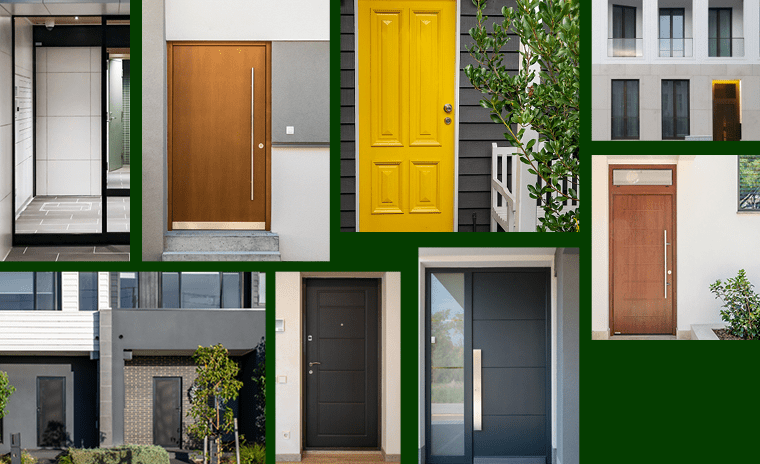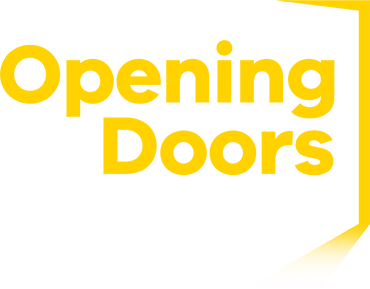Helping you open the door to your first home
Buying your first home can be an exciting yet overwhelming experience. It’s a big step, and for most people, purchasing a home is the largest investment they’ll ever make.
If you’re buying your first home in Victoria, you might be eligible for a range of exemptions, concessions and reductions to help you open the door to your new home.
You might even be eligible for more than one exemption, concession or reduction from stamp duty for the home you’d like to buy.
There are also duty exemptions or concessions available for eligible first home buyers with a family(opens in a new window), young farmers buying their first farmland property(opens in a new window) and eligible pensioners(opens in a new window).
Want a quick comparison? See the exemptions and concessions side by side(opens in a new window).
First home buyer guide
Confused about where to start? We’ve prepared step-by-step guide to help you understand the process to buying your first home in Victoria and where the government can help.
Read the guide at First home buyer guide.
First Home Owner Grant
If you are buying or building a new home, you could be eligible for the First Home Owner Grant of $10,000, if you signed your contract on or after 1 July 2013.
Your new home must be valued at $750,000 or less and be a new home. The property must not have been previously sold as a place of residence, occupied as a home, leased out or used for short-term accommodation, such as Airbnb.
Visit the State Revenue Office to see if you’re eligible at First Home Owner Grant(opens in a new window)
Victorian Homebuyer Fund shared equity scheme
The Victorian Homebuyer Fund is supporting thousands of Victorians to enter home ownership – at a time when it’s harder than ever to save.
If you have a 5% deposit, the Victorian Government could contribute up to 25% of the purchase price in exchange for an equivalent share in the property. This will save you money by reducing your mortgage and removing the need for Lenders Mortgage Insurance.
Aboriginal and Torres Strait Islander participants only require a 3.5% deposit and are eligible for up to a 35% shared equity contribution.
Learn more, see if you’re eligible and apply at Homebuyer Fund(opens in a new window)
Reduced or removed stamp duty
We abolished stamp duty if you’re a first home buyer and buying a house for $600,000 or less.
If you’re buying a home for between $600,000 and $750,000, then we’ve tapered the stamp duty. It is zero at $600,000 then increases slightly as the cost of the home increases to $750,000.
Learn more about stamp duty, or apply for a first home buyer exemption at State Revenue Office – Land transfer duty(opens in a new window)
Stamp duty concessions for buying off-the-plan
Buying "off the plan" means purchasing a property (like a house, apartment, or townhouse) that hasn’t been built yet - based on plans and designs, rather than the finished product.
If you’re buying an off-the-plan property as your main home and you already qualify for the for first home buyer stamp or principle place of residence duty concessions, you may quality for off-the-plan duty concession too.
We’ve extended the off-the plan concession to investment purchases of apartments, units or townhouses in strata subdivisions with common property for contracts entered into between 21 October 2024 and 21 October 2025.
For eligibility criteria and more information, visit State Revenue Office – Off-the-plan duty concession changes(opens in a new window).
Exemption from residency requirements for defence force members
In the past, members of Australia’s Defence Forces may not have met the residency requirements for the First Home Owner Grant or first home buyer stamp duty concession if they had been deployed to other states or overseas.
Current members of the Australian Army, Air Force or Navy are exempt from the residence requirements. The exemption applies to current members of the Australian Army, Air Force or Navy who are enrolled to vote in Victorian elections and are either on duty or leave.
The exemption does not apply to Australian Army, Air Force or Navy reservists or to Australian Public Service staff.
Land tax on vacant residential properties
The vacant residential land tax is helping address housing supply in Victoria by making sure properties are not left uninhabited by their owners. If owners do this, then they need to pay a tax to the government.
From 1 January 2025, vacant residential land tax applies to residential land anywhere in Victoria (except alpine resorts of Mt Baw, Mt Buller, Mt Hotham, Mt Stirling, Falls Creek and Lake Mountain).
You don’t need to pay this tax if you live in your home for more than 6 months in a calendar year.
You can learn more about how the tax is encouraging housing affordability and supporting rental accommodation at Vacant residential land tax — frequently asked questions(opens in a new window)
BuyAssist – community shared equity scheme
BuyAssist helps individuals or households on a low to medium income to buy a home.
BuyAssist assesses your eligibility for the program, assesses what you can afford to borrow and what equity support you require, and how you might be able to realise your homebuyer dream with their help.
The eligibility criteria is similar to the requirements for a bank loan. Buy Assist is run by the private sector through partnerships with developers.
Visit Buy Assist to learn more about how the Buy Assist Homebuyer Help program works(opens in a new window)
Cracking down on underquoting in the real estate industry
Attending an auction for a home that you think you can afford before quickly being outbid can feel demoralising.
There is legislation in place(opens in a new window) to protect buyers from dodgy real estate practices such as underquoting.
It is illegal for a seller or agent to misrepresent a property in any way when advertising or marketing that property, whether verbally or in writing.
You can learn more about underquoting at Consumer Affairs Victoria:
Consumer Affairs Victoria Taskforce officers attend auctions and speak with estate agents, consumers, check for estate agent compliance with auction and sales rules, and monitor for potential underquoting.
Reporting underquoting
When a property sells for more than the price for which it was initially advertised, this does not always mean that underquoting has taken place.
However, if you suspect underquoting, you can report it to Consumer Affairs Victoria(opens in a new window)
Updated


